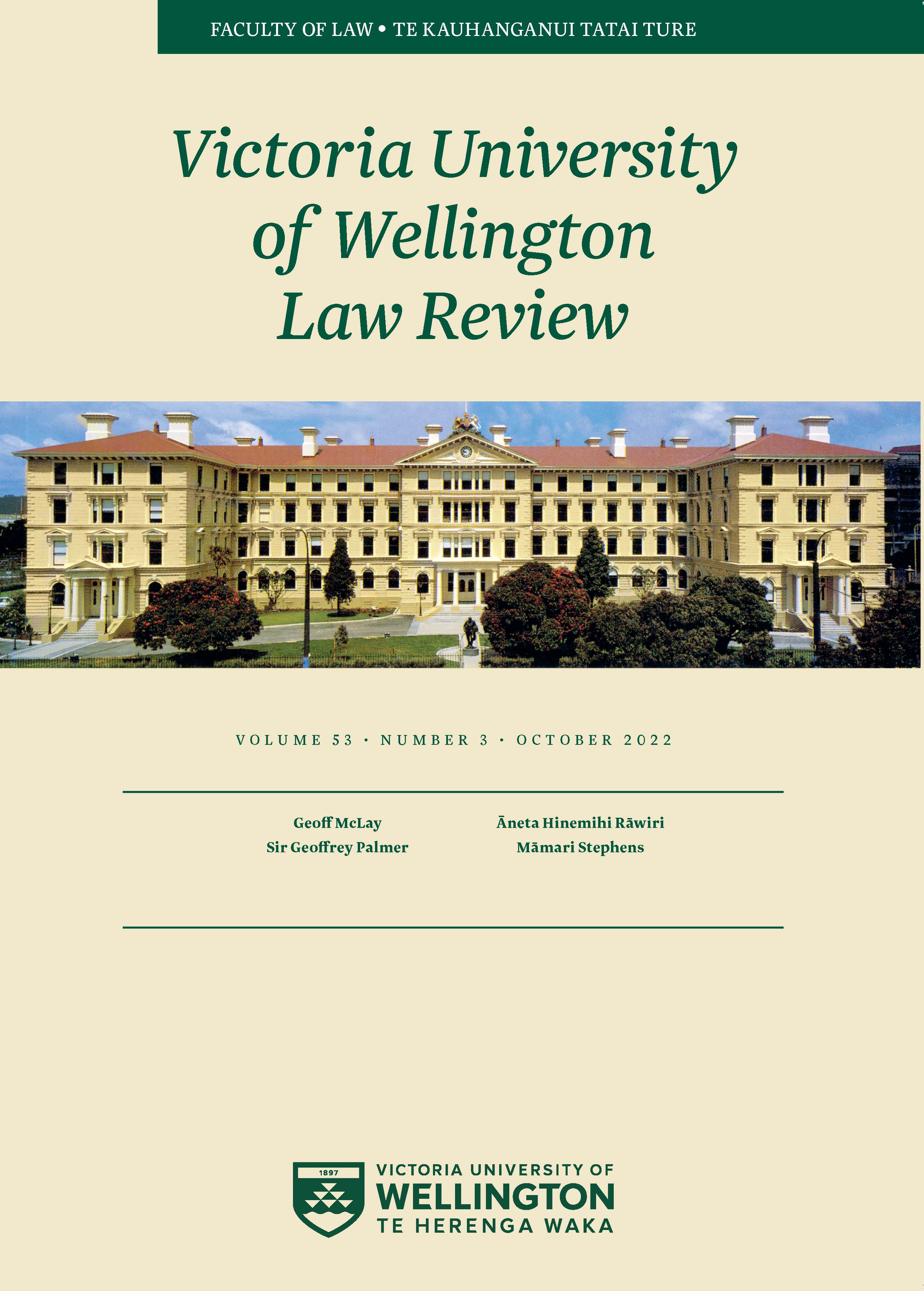Te Awa Tupua, Indigenous Law and Decolonisation
DOI:
https://doi.org/10.26686/vuwlr.v53i3.7998Abstract
Worldwide, Indigenous peoples are building an emerging area of law which can be described as Indigenous jurisprudence. Indigenous jurisprudence is firmly grounded in a legal philosophy that conveys an Indigenous consciousness of all life existing as expressions of sacred life energy. All life, including people, are also children and grandchildren of Grandfather Universe and Grandmother Earth. All life are therefore close and revered kin who coexist interdependently. This article describes the Indigenous law that underpins the Te Awa Tupua Agreement. For Whanganui Iwi, the agreement is a first step towards decolonising New Zealand and its nation state. Decolonisation will be achieved when the natural world determines New Zealand's constitutional framework, and New Zealand's nation state and our Whanganui Iwi nationhood—and our respective legal and governance systems—coexist interdependently.
Downloads
Downloads
Published
How to Cite
Issue
Section
License
Authors retain copyright in their work published in the Victoria University of Wellington Law Review.


